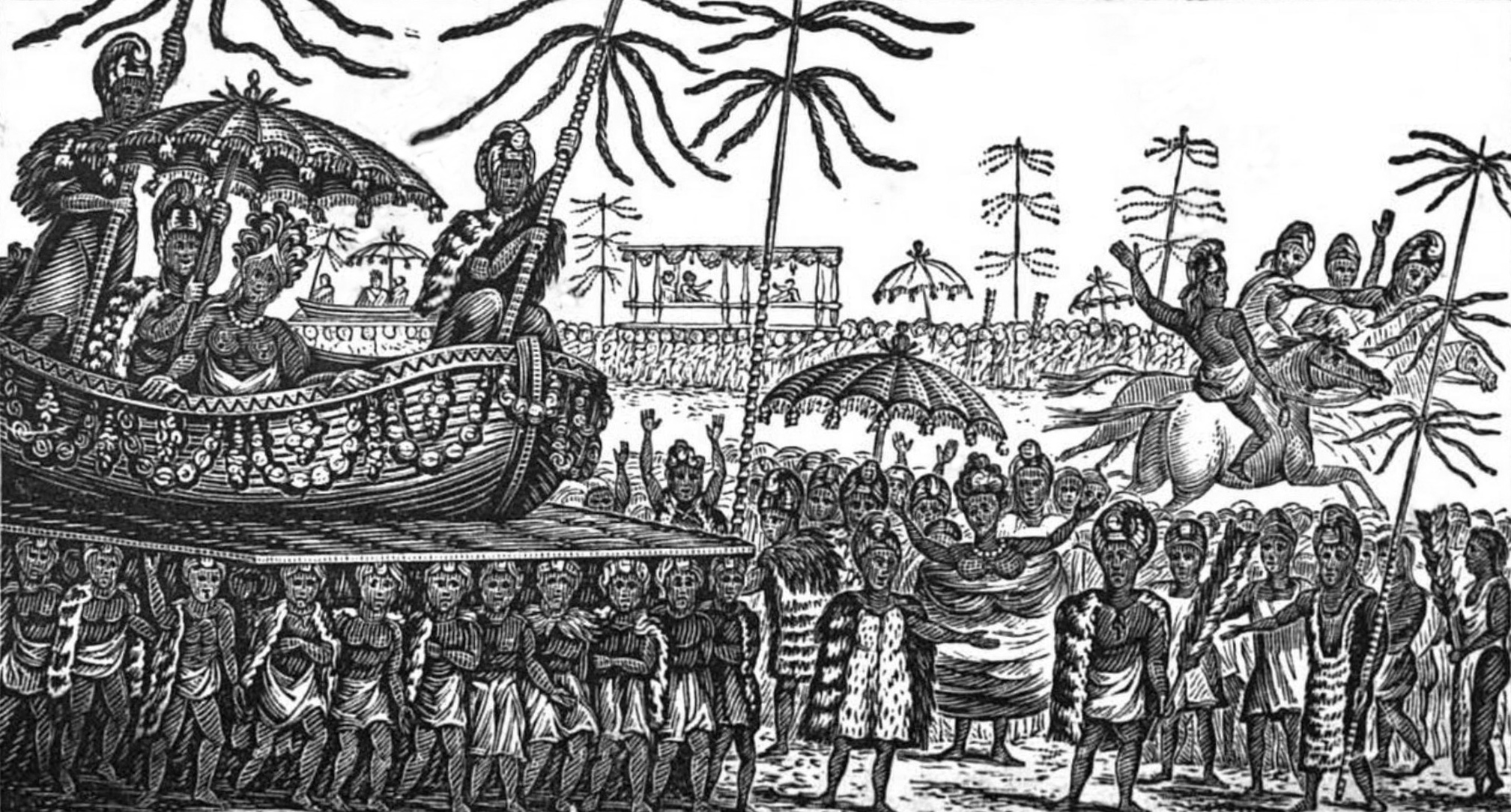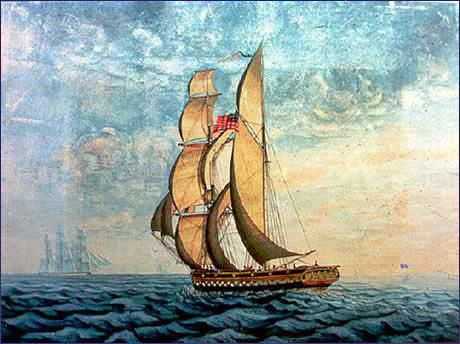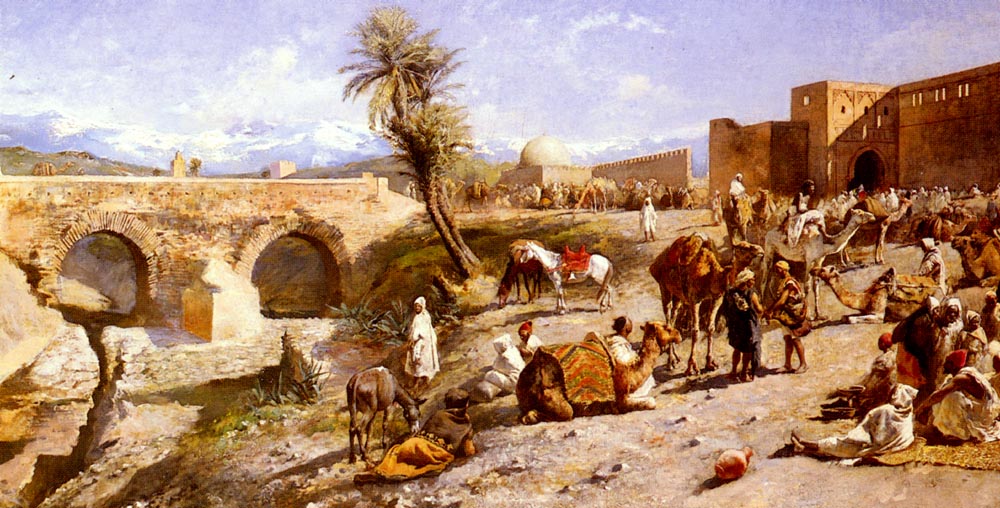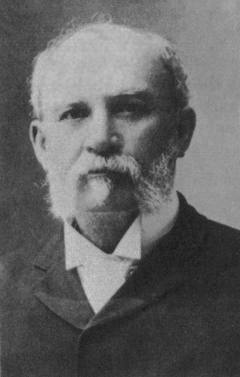|
Kalani Pauahi
Pauahi (c.1804–1826) was a member of the royal family of the Kingdom of Hawaii in the House of Kamehameha. Referred as Pauahi in her lifetime, she is often referred to as Kalanipauahi or Kalani Pauahi to differentiate her from her niece and namesake Bernice Pauahi Bishop. Life Pauahi was born circa 1804. Her mother was Keouawahine, daughter of Kauhiwawaeono of Maui by his wife, chiefess Loe-wahine, who in turn was daughter of Kameeiamoku. Her father was the High Chief Pauli Kaʻōleiokū (1767–1818). The name ''Pauahi'' originated in an incident which occurred in her childhood. By an accidental explosion of gunpowder she narrowly escaped being burned to death. Five men were killed in the catastrophe, her mother house was burned to the ground, and she was badly injured. In commemorating her escape she was given the name Pauahi, which is composed of two Hawaiian words, ''pau'', "finished", or "completed" and ''ahi'', "fire", which, when translated, means "the fire is out". ... [...More Info...] [...Related Items...] OR: [Wikipedia] [Google] [Baidu] |
Kamehameha II
Kamehameha II (November 1797 – July 14, 1824) was the second king of the Kingdom of Hawaii. His birth name was Liholiho and full name was Kalaninui kua Liholiho i ke kapu ʻIolani. It was lengthened to Kalani Kaleiʻaimoku o Kaiwikapu o Laʻamea i Kauikawekiu Ahilapalapa Kealiʻi Kauinamoku o Kahekili Kalaninui i Mamao ʻIolani i Ka Liholiho when he took the throne. Early life Kamehameha II was born in the month of Hanaiaʻeleʻele (corresponding to November) 1797 in Hilo, on the island of Hawaiʻi, the first born son of Kamehameha I with his highest-ranking wife Keōpuolani. It was originally planned that he would be born at the Kūkaniloko birth site on the island of Oʻahu but the Queen's sickness prevented travel. Given in care to his father's trusted servant Hanapi, who took the child to rear him in the lands of Kalaoa in Hilo Paliku, he was taken back, after five or six months, by his maternal grandmother Kekuʻiapoiwa Liliha because she felt he was not getting ... [...More Info...] [...Related Items...] OR: [Wikipedia] [Google] [Baidu] |
Procession To Commemorate The Death Of King Tamaha-meha
A procession is an organized body of people walking in a formal or ceremonial manner. History Processions have in all peoples and at all times been a natural form of public celebration, as forming an orderly and impressive ceremony. Religious and triumphal processions are abundantly illustrated by ancient monuments, e.g. the religious processions of Egypt, those illustrated by the rock-carvings of Boghaz-Keui, the many representations of processions in Greek art, culminating in the great Panathenaic procession of the Parthenon Frieze, and Roman triumphal reliefs, such as those of the arch of Titus. Greco-Roman practice Processions played a prominent part in the great festivals of Greece, where they were always religious in character. The games were either opened or accompanied by more or less elaborate processions and sacrifices, while processions from the earliest times formed part of the worship of the old nature gods, as those connected with the cult of Dionysus and the Ph ... [...More Info...] [...Related Items...] OR: [Wikipedia] [Google] [Baidu] |
Royalty Of The Hawaiian Kingdom
Royalty may refer to: * Any individual monarch, such as a king, queen, emperor, empress, etc. * Royal family, the immediate family of a king or queen regnant, and sometimes his or her extended family * Royalty payment for use of such things as intellectual property, music, or natural resources Music * The Royalty (band), a 2005–2013 American rock band * Royalty Records, a Canadian record label Albums * ''Royalty'' (Chris Brown album), 2015 * ''Royalty'' (EP), by EarthGang, 2018 * ''Royalty'' (mixtape), by Childish Gambino (Donald Glover), 2012 * ''The Royalty'' (album), by the Royal Royal, 2012 * '' The Royalty: La Realeza'', by R.K.M & Ken-Y, 2008 Songs * "Royalty" (Down with Webster song), 2012 * "Royalty" (XXXTentacion song), 2019 * "Royalty", by Conor Maynard, 2015 * "Royalty", by Nas from ''The Lost Tapes 2'', 2019 Theatres * Royalty Theatre, a demolished theatre in Soho, London, England * Royalty Theatre, Glasgow, a demolished theatre in Scotland * Peacock Theatre, ... [...More Info...] [...Related Items...] OR: [Wikipedia] [Google] [Baidu] |
Deaths In Childbirth
Death is the irreversible cessation of all biological functions that sustain an organism. For organisms with a brain, death can also be defined as the irreversible cessation of functioning of the whole brain, including brainstem, and brain death is sometimes used as a legal definition of death. The remains of a former organism normally begin to decompose shortly after death. Death is an inevitable process that eventually occurs in almost all organisms. Death is generally applied to whole organisms; the similar process seen in individual components of an organism, such as cells or tissues, is necrosis. Something that is not considered an organism, such as a virus, can be physically destroyed but is not said to die. As of the early 21st century, over 150,000 humans die each day, with ageing being by far the most common cause of death. Many cultures and religions have the idea of an afterlife, and also may hold the idea of judgement of good and bad deeds in one's life (heaven ... [...More Info...] [...Related Items...] OR: [Wikipedia] [Google] [Baidu] |
1826 Deaths
Eighteen or 18 may refer to: * 18 (number), the natural number following 17 and preceding 19 * one of the years 18 BC, AD 18, 1918, 2018 Film, television and entertainment * ''18'' (film), a 1993 Taiwanese experimental film based on the short story ''God's Dice'' * ''Eighteen'' (film), a 2005 Canadian dramatic feature film * 18 (British Board of Film Classification), a film rating in the United Kingdom, also used in Ireland by the Irish Film Classification Office * 18 (''Dragon Ball''), a character in the ''Dragon Ball'' franchise * "Eighteen", a 2006 episode of the animated television series ''12 oz. Mouse'' Music Albums * ''18'' (Moby album), 2002 * ''18'' (Nana Kitade album), 2005 * '' 18...'', 2009 debut album by G.E.M. Songs * "18" (5 Seconds of Summer song), from their 2014 eponymous debut album * "18" (One Direction song), from their 2014 studio album ''Four'' * "18", by Anarbor from their 2013 studio album '' Burnout'' * "I'm Eighteen", by Alice Cooper commonl ... [...More Info...] [...Related Items...] OR: [Wikipedia] [Google] [Baidu] |
1804 Births
Eighteen or 18 may refer to: * 18 (number), the natural number following 17 and preceding 19 * one of the years 18 BC, AD 18, 1918, 2018 Film, television and entertainment * ''18'' (film), a 1993 Taiwanese experimental film based on the short story ''God's Dice'' * ''Eighteen'' (film), a 2005 Canadian dramatic feature film * 18 (British Board of Film Classification), a film rating in the United Kingdom, also used in Ireland by the Irish Film Classification Office * 18 (''Dragon Ball''), a character in the ''Dragon Ball'' franchise * "Eighteen", a 2006 episode of the animated television series ''12 oz. Mouse'' Music Albums * ''18'' (Moby album), 2002 * ''18'' (Nana Kitade album), 2005 * '' 18...'', 2009 debut album by G.E.M. Songs * "18" (5 Seconds of Summer song), from their 2014 eponymous debut album * "18" (One Direction song), from their 2014 studio album ''Four'' * "18", by Anarbor from their 2013 studio album '' Burnout'' * "I'm Eighteen", by Alice Cooper common ... [...More Info...] [...Related Items...] OR: [Wikipedia] [Google] [Baidu] |
:Template:Kamehameha Family Tree
This is used for articles about the Kamehameha family of royalty in the Hawaiian Kingdom The Hawaiian Kingdom, or Kingdom of Hawaiʻi (Hawaiian language, Hawaiian: ''Ko Hawaiʻi Pae ʻĀina''), was a sovereign state located in the Hawaiian Islands. The country was formed in 1795, when the warrior chief Kamehameha the Great, of the .... , - , style="text-align: left;", Notes: {{chart bottom Hawaii family tree templates ... [...More Info...] [...Related Items...] OR: [Wikipedia] [Google] [Baidu] |
Wahinepio
Kahakuhaʻakoi Wahinepio (died 1826) was a Hawaiian chiefess and member of the royal family during the Kingdom of Hawaiʻi. Wahinepio means ''captive women'' in Hawaiian. Sometimes she is called Wahineopiʻo, or an extra ʻokina is added, calling her Kahakuhaʻakoʻi. She was also called Kamoʻonohu. She was considered Kamehameha I's third favorite wife and served as female Governor of Maui, an act unheard of at the time in the western world, but common in Hawaiian history. Life She was born on the island kingdom of Maui. Her father was Kekuamanoha, and her mother was Kamakahukilani, the niece of her father. Through her father she was a granddaughter of Kekaulike, the King or Moʻi of Maui. Her mother was the daughter of Kauhiaimokuakama, the eldest son of Kekaulike, who was denied the right of succession to the throne of Maui due to his mother Kahawalu's inferior rank in contrast to Kekaulike's other wife Kekuiapoiwa I. Supported by King Peleioholani of Oahu, he fough ... [...More Info...] [...Related Items...] OR: [Wikipedia] [Google] [Baidu] |
Governors Of Kauai
The Governor of Kauai ( haw, Kiaaina o Kauai) was the royal governor or viceroy of the island of Kauai and island of Niihau during the Kingdom of Hawaii. The Governor of Kauai was usually a Hawaiian chief or prince and could even be a woman. The governor had authority over the islands of Kauai and Niihau, and it was up to the governor to appoint lieutenant governors to assist them. The governor had replaced the old alii aimokus of the islands, but the sovereignty remained with the king. The first governor was the last king of Kaumualii, and it was not until his death in 1824 that Queen Kaahumanu and King Kamehameha II took control from his sons. The island governors were under the jurisdiction of the Ministers of the Interiors. Role In the 1840 Constitution of the Kingdom of Hawaii it states: ''There shall be four governors over these Hawaiian Islands - one for Hawaii - one for Maui and the Islands adjacent - one for Oahu, and one for Kauai and the adjacent Islands. All th ... [...More Info...] [...Related Items...] OR: [Wikipedia] [Google] [Baidu] |
Tapa Cloth
Tapa cloth (or simply ''tapa'') is a barkcloth made in the islands of the Pacific Ocean, primarily in Tonga, Samoa and Fiji, but as far afield as Niue, Cook Islands, Futuna, Solomon Islands, Java, New Zealand, Vanuatu, Papua New Guinea and Hawaii (where it is called ''kapa''). In French Polynesia it has nearly disappeared, except for some villages in the Marquesas. General The cloth is known by a number of local names although the term tapa is international and understood throughout the islands that use the cloth. The word tapa is from Tahiti and the Cook Islands, where Captain Cook was the first European to collect it and introduce it to the rest of the world. In Tonga, tapa is known as ngatu, and here it is of great social importance to the islanders, often being given as gifts. In Samoa, the same cloth is called siapo, and in Niue it is hiapo. In Hawaii, it is known as kapa. In Rotuma, a Polynesian island in the Fiji group, it is called ‘uha and in other Fiji island ... [...More Info...] [...Related Items...] OR: [Wikipedia] [Google] [Baidu] |
Funeral Procession Of Keopuolani From Her Posthumous Memoir
A funeral is a ceremony connected with the Disposal of human corpses, final disposition of a corpse, such as a burial or cremation, with the attendant observances. Funerary customs comprise the complex of beliefs and practices used by a culture to remember and respect the dead, from interment, to various monuments, prayers, and rituals undertaken in their honor. Customs vary between cultures and Religion, religious groups. Funerals have both normative and legal components. Common secular motivations for funerals include mourning the deceased, celebrating their life, and offering support and sympathy to the bereaved; additionally, funerals may have religious aspects that are intended to help the soul of the deceased reach the afterlife, resurrection or reincarnation. The funeral usually includes a ritual through which the corpse receives a final disposition. Depending on culture and religion, these can involve either the destruction of the body (for example, by cremation or sky bu ... [...More Info...] [...Related Items...] OR: [Wikipedia] [Google] [Baidu] |
Kameʻeiamoku
Kameeiamoku (died 1802) was a Hawaiian high chief and the Counselor of State to King Kamehameha I. He was called Kamehameha's uncle, but he was really the cousin of Kamehameha's mother, Kekuiapoiwa II. Birth and ancestry Along with his twin brother Kamanawa, Kameeiamoku's parents were the ''keiki aliʻi'' (prince or child of a chief), Keawepoepoe and Kanoena (w). As the son of Kalanikauleleiaiwi and Lonoikahaupu, monarch's of several kingdoms between them, Keawepoepoe was an ''aliʻi'' (noble) of Hawaii, Maui, Oahu and Kauai. As well being an ''aliʻi nui'' (great king or supreme monarch) Lonoikahaupu was a kahuna (priest) of the order of Lono (order of Nahulu or Holoa'e), one of two priestly orders, Kū (Kuali'i or Kauali'i) being the other. Through this union Keawepoepoe received the ''kapu o pahenakalani'' (the prostrating kapu) which is how the Hawaii ''aliʻi'' received the ''kapu'' (a religious code of conduct) called the ''kapu moe''. Fornander identifies their mother ... [...More Info...] [...Related Items...] OR: [Wikipedia] [Google] [Baidu] |





_LACMA_M.2010.160.jpg)
